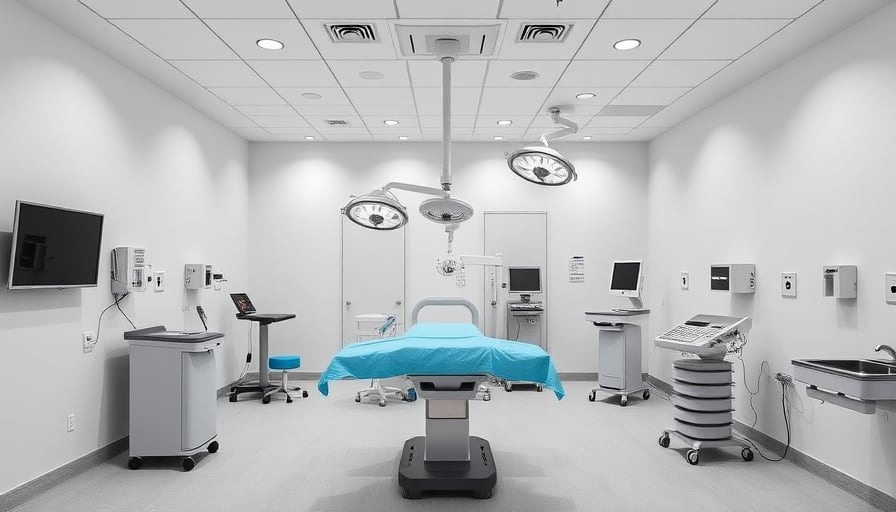Zimmer Biomet Holdings Faces Legal and Market Turmoil After Q3 Results
Zimmer Biomet Holdings Inc. (NYSE: ZBH), a global health‑care equipment supplier headquartered in Warsaw, Poland, has been thrust into the spotlight following the release of its third‑quarter 2025 earnings on November 5. The announcement triggered a 15 % plunge in the stock price—$15.63 per share—landing the shares at $89.91 on the closing bell of November 13, a sharp decline from the $114.44 high reached earlier this year and well below the 52‑week low of $85.33.
The Catalyst: Cancelled Emerging‑Markets Orders and a Slimmer Outlook
The core of the market’s reaction lay in two intertwined revelations:
Emerging‑Markets Distributor Order Cancellation – Zimmer Biomet disclosed that it had canceled a series of distributor orders in key emerging‑market territories. The company did not provide granular detail on the magnitude of the cancellations, but the news alone signaled a weakening demand pipeline in high‑growth regions that have historically underpinned the company’s revenue diversification.
Revised Top‑Line Forecast – The firm lowered the upper bound of its full‑year organic revenue growth to a range of 3.5 %–4.0 %. This revision came after reporting third‑quarter net sales of $2.0 billion, missing consensus estimates of $2.01 billion. The tightening of growth expectations eroded investor confidence, especially in a sector where margin compression and competitive pressures are already intense.
The combined effect of these disclosures was a loss of investor faith that culminated in a 15 % drop in the share price, a move that sent shockwaves through the broader health‑care equipment and supplies industry.
Legal Fallout: Shareholder Investigations by Leading Law Firms
In the wake of the sharp decline, two prominent shareholder‑rights firms have opened formal investigations into potential violations of federal securities laws by Zimmer Biomet:
Hagens Berman – The firm announced a probe into whether the company’s management may have breached disclosure obligations. Hagens Berman urged investors who suffered significant losses to submit their claims and called for assistance from any parties with knowledge pertinent to the investigation.
Levi & Korsinsky – Parallel to Hagens Berman’s inquiry, Levi & Korsinsky also commenced an investigation, citing the same earnings release and the subsequent market reaction. The firm highlighted that the company’s net sales shortfall and the downgrade of its revenue outlook could constitute misleading statements or omissions under the Securities Exchange Act of 1934.
These investigations are not mere formalities; they signal that regulatory scrutiny could lead to sanctions, civil penalties, or even criminal charges if evidence of intentional misrepresentation emerges. Investors must therefore reassess the risk profile of a company that has historically been a staple in the orthopedic and dental implant market.
Market Context: A 34 % Decline Over Five Years
To understand the gravity of the present situation, it is instructive to look back five years. At the close on November 14, 2020, Zimmer Biomet traded at $136.50. An investment of $1,000 at that time would have yielded 7,326 shares, now worth only $658.68 at $89.91 per share—a 34.13 % negative performance. This slide is particularly stark given the company’s $17.8 billion market capitalization and a price‑earnings ratio of 22.35, figures that once made Zimmer Biomet a coveted pick among value‑and‑growth investors.
The Bottom Line
Zimmer Biomet’s recent earnings miss and the cancellation of emerging‑markets distributor orders are not isolated hiccups. They have exposed deeper vulnerabilities in the company’s growth strategy, supply‑chain resilience, and transparency. Coupled with aggressive legal scrutiny from two leading shareholder‑rights firms, the stock’s future trajectory appears uncertain.
For investors who value robust corporate governance, transparent communication, and a resilient global sales network, Zimmer Biomet now presents a risk profile that warrants caution. The company’s legacy of innovation in orthopedic, dental, and spinal implants cannot alone offset the potential regulatory and market headwinds that loom on the horizon.
